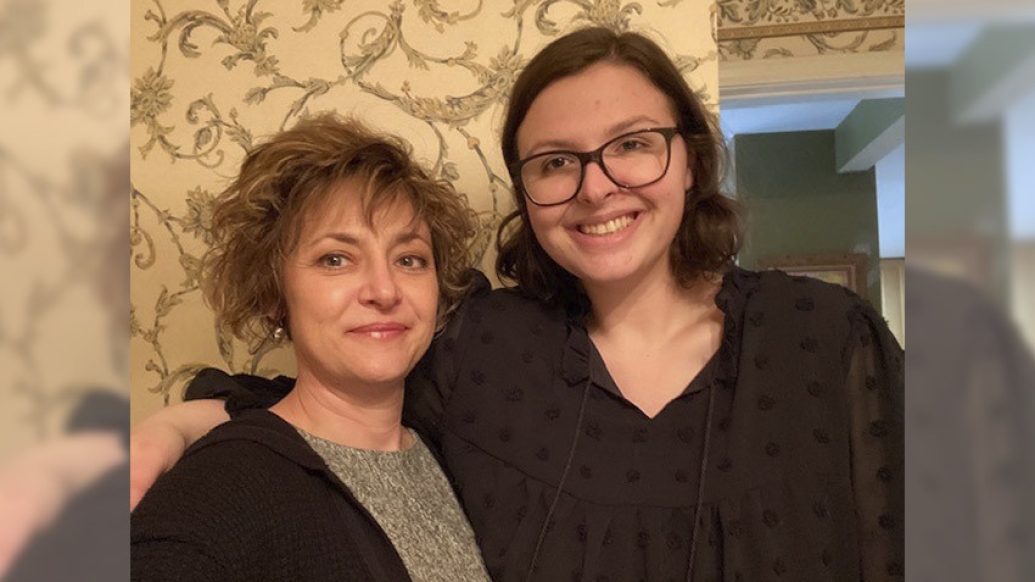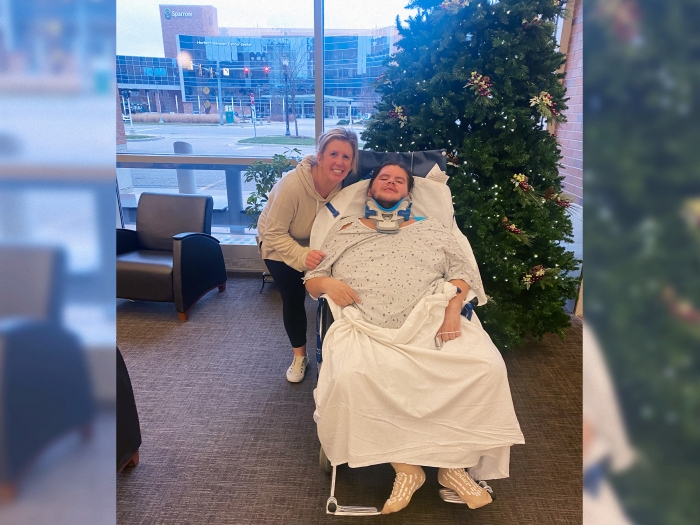Called NeuroPace, the medical device helped one patient overcome her epileptic seizures.
10:40 PM
Author |

For Sarah Mellendorf, her life-altering medical journey began innocently enough.
"I started to get some weird feelings, almost as though I was having déjà vu," says Sarah, who was 16 years old at the time.
But those feelings became more frequent and more severe, and Sarah began to think she may be having epileptic seizures. So she and her mom, a Michigan Medicine care management nurse named Shanda Willis, went to the nearest hospital to get tested.
Sarah underwent a brief brain scan, and based off the test results and her symptoms, she was placed on medication.
When those didn't stop the seizures from taking place, Shanda decided it was time for Sarah to go to Michigan Medicine for a second opinion.
"Working there, I knew the capabilities they had both technologically and in terms of our experts," Shanda says. "I knew that the pediatric neurology program was where Sarah needed to be."
A diagnosis
Sarah underwent several tests that required inpatient stays at C.S. Mott Children's Hospital. Eventually, she was diagnosed with intractable epilepsy, a disorder that causes electrical malfunctions — or seizures — in the brain's temporal lobe and can't be treated by medication.
For Sarah, the seizures would always occur in the morning, and then four to seven more times throughout the day.
"While I would never black out, I would become consciously unaware of what was going on," Sarah says. "I could be having a conversation and then two minutes later I'd have to ask what we were talking about."
That made typical life functions difficult. For a teenager, that meant she could not drive and, eventually, even schoolwork became nearly impossible.
MORE FROM MICHIGAN: Sign up for our weekly newsletter
What Sarah needed was a solution — and new technology provided exactly that.
Placing a pace
Hugh Garton, M.D., M.H.Sc., was Sarah's neurosurgeon at Mott. He and two pediatric neurologists — Sucheta Madhav Joshi, MBBS, and Erin Marie Fedak Romanowski, D.O. — came up with a plan that they thought could help Sarah lead a relatively normal life.
"The team recommended that we implant a NeuroPace directly into Sarah's brain," Shanda says. "Basically, they would place a neurostimulator that could feed the brain electric shocks if a seizure was about to occur."
The surgery had only been done a handful of times before at Mott.
"That made it a little scary to have the surgery," Sarah says. "But at the same time, the reassurances of the doctors and everyone else helped so much. In the end, it was clear that I needed to take the leap and get the pace put in."
The surgery was a success, and the results have been eye-opening. Sarah has had only one minor seizure in the 18 months since the surgery.
'I'm really lucky to be where I am today'
Sarah, now 22, is nearly finished with her bachelor's degree in social work. Then she plans to pursue a Master's in the field.
And helping her get through school? A job delivering pizzas.
"I have a job that involves driving — can you believe that?" Sarah says with a smile. "I went years without ever driving, and now it's helping put me through school."
Like Podcasts? Add the Michigan Medicine News Break on iTunes, Google Podcast or anywhere you listen to podcasts.
Looking ahead, Sarah said the NeuroPace will be a part of her life forever. But technology makes it easy to use — she can even download information from the device and send it to her doctors who can adjust any necessary settings. And every eight years, she will come in for a simple procedure to get the batteries changed.
All in all, she and her mother can't say enough about their experience at Michigan Medicine.
"The doctors have been just incredible," Sarah says. "But that's not all. The nurses and techs have been so friendly and comforting and Denver the hospital dog would come and visit — they were all just what I needed when times got tough."
To this day, Shanda said her colleagues on the pediatric neurology floor ask about Sarah frequently: "They'll come up and say 'How's our girl?' It just [feels like] one big family here — it's a pretty special place."
And it's a place that has proven to be a perfect fit for Sarah and Shanda.
"I feel like this is a second chance," Sarah says. "I'm really lucky to be where I am today."

Explore a variety of healthcare news & stories by visiting the Health Lab home page for more articles.

Department of Communication at Michigan Medicine
Want top health & research news weekly? Sign up for Health Lab’s newsletters today!





